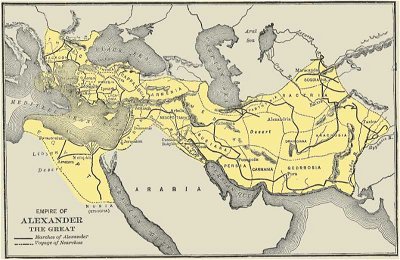26. In the early 1000s, a number of Norsemen undertook voyages from Greenland to the east coast of North America. The area where they landed, known as Vinland, is now part of which Canadian province?
From Quiz 2nd Millennium AD: One Question per Century (#2)
Answer:
Newfoundland and Labrador
Most of what we know about the Viking colonization of North America is contained in two 13th-century Icelandic sagas, the "Saga of Erik the Red" and the "Saga of the Greenlanders", also known as the "Vinland Sagas". Both of them start with Erik the Red, the Norse explorer who founded the first settlement in Greenland around 985, then move on to chronicle the life and explorations of other colonizers - such as wealthy merchant Thorfinn Karlsefni, one of the followers of Leif, Erik's son.
Around 1010, Thorfinn and his wife, Gudrid Thorbjarnadóttir, the widow of Leif Eriksson's brother Thorvald, left Greenland with 3 ships and about 140 men, intending to establish a settlement in Vinland, the area of coastal North America where Leif had landed a few years earlier. Their son, Snorri, is believed to have been the first European born on the American continent outside of Greenland. Due to the hostility of the native population, the settlement was eventually abandoned, and Thorfinn and his family went back to Iceland.
Though the exact location of Thorfinn's settlement is unknown, some experts have identified it with L'Anse aux Meadows, the only site that offers indisputable proof of the presence of European explorers in the Americas before Christopher Columbus. L'Anse aux Meadows is located on the northernmost tip of Newfoundland, the large island in the Atlantic Ocean that is part of the Canadian province of Newfoundland and Labrador. The Norse settlement, which was first excavated in the 1960, has been dated to around 1000. It was designated as a National Historic Site of Canada in 1968, and a UNESCO World Heritage Site in 1978.








